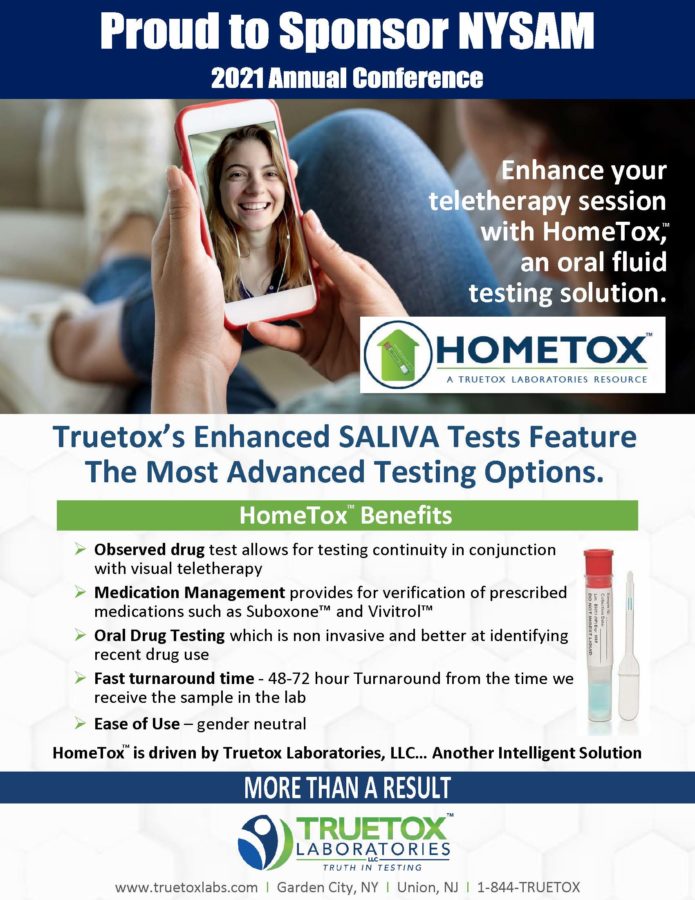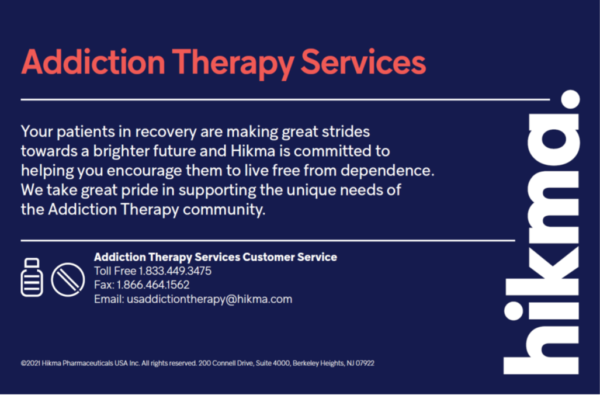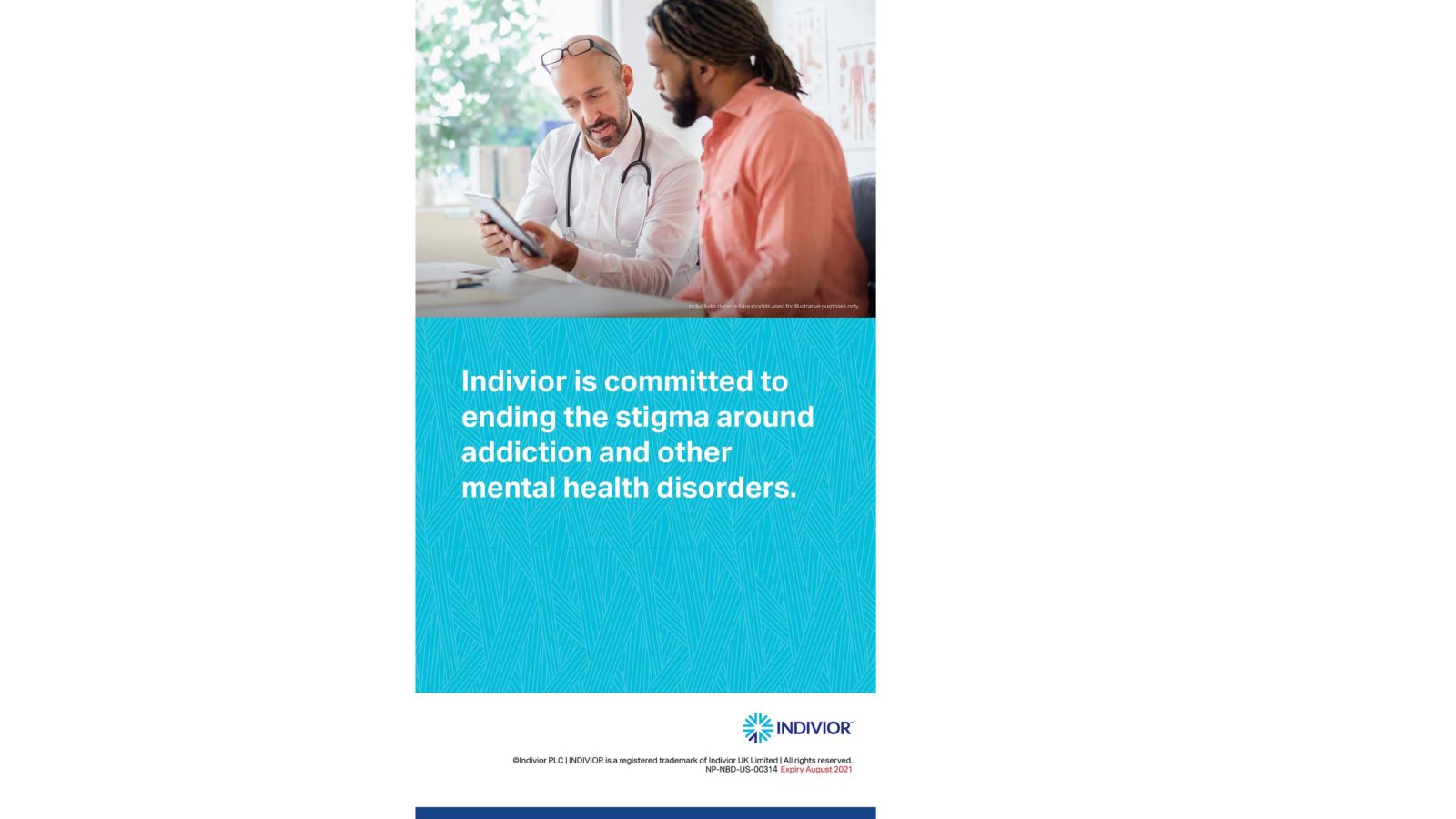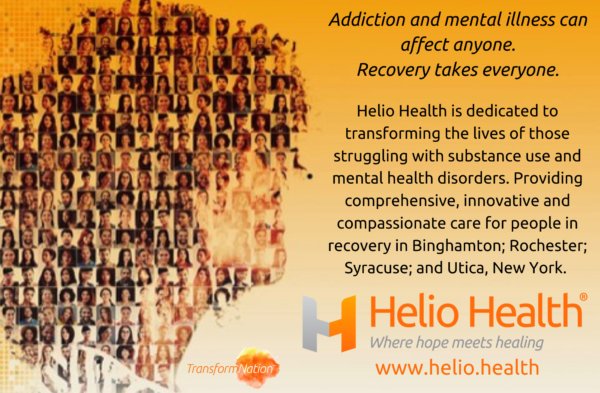2021 NYSAM Annual Virtual Meeting
February 5-6, 2021

NYSAM BOARD MEMBERS
Timothy Wiegand, MD, FACMT, FAACT, DFASAM President
timothy_wiegand@urmc.rochester.edu
Kelly S. Ramsey, MD, MPH, MA, FACP President-Elect, Education Committee Chair
kellysramsey@yahoo.com
Dorothy Lennon, MD Secretary
dlennon@twcny.rr.com
Ross Sullivan, MD Treasurer
sullivar@upstate.edu
Michael Delman, MD Immediate Past President, Nominations Committee Chair
nicedreams@verizon.net
Aaron Fox, MD Public Policy Committee Chair
ADFOX@montefiore.org
Merrill Herman, MD Membership Committee Chair
mherman@montefiore.org
Melissa Weimer, DO, FASAM Regional Director to ASAM, Communications Committee Chair
Melissa.Weimer@yale.edu
Greg Bunt, MD Alternate Regional Director to ASAM
buntmd@aol.com
Norm Wetterau, MD Public Policy Committee Co-Chair
normwetterau@aol.com
Dan Schatz, MD Communications Committee Co-Chair
DanASchatz@gmail.com
Aaron Fields, MD
aaron_fields@urmc.rochester.edu
Jade Malcho, MD
jade_malcho@urmc.rochester.edu
Hector Biaggi, MD Membership Committee Co-Chair
drbiaggi@gmail.com
Eric Collins, MD Nominations Committee Co-Chair
edc3@cumc.columbia.edu
Jun David, MD Bylaws Committee Co-Chair
jundavid83@aol.com
NYSAM AWARDS 2021
NYSAM Lifetime Achievement Award in Addiction Medicine:
Recipient: Edwin A. Salsitz, MD, DFASAM (see bio below)
We gratefully acknowledge your contributions to the field of addiction medicine; particularly with respect to your dedication to educating health care providers and the public about addiction.
President’s Award:
Recipient: Jeffrey Selzer, MD, DFASAM (see bio and photo below)
For your work with students and physicians with substance use disorder and ongoing contributions to NYSAM and ASAM
Recipient: Sharon Stancliff, MD, DFASAM
For your outstanding and lifesaving work in normalizing the application of Harm Reduction and continuing contributions to the field of Addiction Medicine.
Associate Medical Director of Harm Reduction in Health Care
New York State Department of Health
Sharon Stancliff, M.D. is Associate Medical Director for Harm Reduction in Health Care at the NYS DOH AIDS Institute, NYSDOH. Dr. Stancliff has been working with people who use drugs since 1990, including provision of primary care, drug treatment, HIV care and syringe access. She is currently focused on opioid overdose prevention through expanding access to naloxone and expanding access to buprenorphine in primary care and in less traditional settings, such as syringe exchange programs.
Dr. Stancliff graduated from the School of Medicine at the University of California at Davis, did her Family Practice residency at the University of Arizona, and completed the AIDS Institute-sponsored Nicolas Rango HIV Clinical Scholars Program at Beth Israel Medical Center in New York City. She is board certified in Family Medicine and in Addiction Medicine. She serves on the Public Policy Committee of ASAM.
NYSAM President’s Welcome
All,
Welcome to the 17th Annual New York Society of Addiction Medicine (NYSAM) Public Policy Day and Science, Policy, and Treatment Conference. This 17th conference represents a unique event for us all and it symbolizes the challenges and opportunities we have faced this past year in our lives, at home, and professionally. Each year I relish the opportunity to visit New Year City and meet up with friends and colleagues.
There is traditionally a sushi dinner somewhere and at least on one of the nights I visit Prince Street Pizza at about 1:00 AM. Sunday morning, prior to flying back to Rochester, I typically meet up at Katz’s Deli with a friend and colleague, and frequent NYSAM toxicology panelist who has a residence in NYC, Dr. Paul Wax, for a final fantastic breakfast/lunch before flying home. I know many attendees enjoy the conference for the content and similar experiences whether Broadway shows or other activities the city has to offer. While I’m sad that we are not able to meet up this year, the opportunities created by necessity in the face of COVID-19 led us all to rethink not just care delivery but also how we connected with families and friends and interacted professionally.
I’m sure many of you have had virtual Monopoly games with family members who haven’t been able to visit this past year or connected for a Zoom social hour (often after many hours of Zoom meetings during the day). Instead of the in-person conference, professional societies had to rethink conference delivery, turning the events virtual during this past year, and, often doing so very rapidly. This is the first virtual conference NYSAM has done.
It has come together with extraordinary help from our administrative support at the Medical Society of the State of New York (MSSNY) and I can’t thank them enough for the help, well beyond what was anticipated, in particular, at the last hour. We have had a few opportunities to do ‘dry runs’ this past year with our General Assembly and the recent Public Policy and Advocacy Webinar hosted by our Public Policy and Advocacy Chair Dr. Aaron Fox on Criminal Justice Reform and the use of Medications to Treat Opioid Use Disorder while incarcerated and in the criminal justice system. Earlier in the year, we also had a webinar related to telemedicine and COVID-19 presented by Dr. Kelly S. Ramsey –President-Elect of NYSAM and Chair of the Education and Program Planning Committee.
This event is an opportunity for connection –remotely, but we can still connect. Our organizing committee has brought an extraordinary group of talented presenters in diverse fields to us for this Virtual conference, and, while it is shorter it is packed with content and includes 9.0 hours of Category I CME which will be available for attendees who participate in real-time or return to the NYSAM website after the content has been uploaded. I’m also pleased to continue hosting and to close out the conference on Saturday with the Toxicology Panel case discussions.
Please take time to visit our generous sponsors this year –several are hosting Zoom breakout rooms and others are featured in the conference program. Some have announced specific times of availability and presentation. Their separate Zoom breakout rooms will be available for a half-hour pre-and post- the conference on both days and any specific presentation or meet and greet times will be announced throughout the event.
Also, as in all Zoom meetings, please make sure you remain muted throughout. The chat resource is available for questions and will be moderated throughout both days. We need our presenters uninterrupted by feedback and the background noise of calls and chatting when someone inadvertently ‘unmutes’ and is unaware (which I have done in the past but will be very focused on not doing during this event J).
Thank you all for registering and attending this event, it has taken a lot of time and effort to put this together and we have an outstanding conference to show for the hard work. For the coming year, I hope we are all safe, healthy, and moving forward with life as it was in prior years, that we can meet up in New York City in 2022, and that I can enjoy good sushi, pizza, and Jewish deli brunch, but we will figure that out soon enough.
My very best to you all,
Tim Wiegand, MD, FACMT, FAACT, DFASAM
President –New York Society of Addiction Medicine (NYSAM)
2/5/2021
Schedule
Friday, February 5th, 1 pm – 5 pm
The Annual Public Policy Day
Scheduled topics include: Policy Priorities for 2021 and Beyond; What Will Drug Decriminalization Legislation Mean for Addiction Prevention and Treatment in Oregon?; Nursing Facilities and MOUD Access; Update on New ASAM Policy Statements
Saturday, February 6th, 8 am – 1:30 pm
The Annual Scientific and Treatment Conference
Scheduled topics include: Clinical Case Presentations; Treatment of SUD in the Context of COVID-19; XR Buprenorphine in Clinical Practice; Stimulant Use Disorder and Potential Therapeutics; and Toxicology Panel: Cases in Toxicology
Annual Public Policy Day
Saturday, February 5th
Session 1: “Policy priorities for 2021 and beyond” 1 pm-1:50 pm
Objectives:
- Learners will list at least 3 initiatives in the United States to combat the overdose crisis
- Learners will describe at least 1 policy priority for New York state addiction medicine practitioners
- Learners will describe regulations regarding telemedicine and potential changes post-COVID-19
Speakers:
Yngvild Olsen, MD MPH, Vice-President, American Society of Addiction Medicine
Mitchell Nuland, MA, Advocacy and Gov’t Relations, American Society of Addiction Medicine
Kelly Ramsey, MD MPH, Associate Chief of Addiction Medicine, OASAS
Break: 1:50 pm-2 pm
Session 2: “What will drug decriminalization mean for addiction prevention and treatment – Oregon’s Measure 110” 2 pm-3:20 pm
Objectives:
- Learners will list key components of Oregon’s Drug Decriminalization and Addiction Treatment Initiative
- Learners will describe at least one international example of drug decriminalization
- Learners will describe similarities and differences between Oregon and New York State regarding addiction treatment services
Speakers:
Morgan Godvin, Commissioner, Oregon Alcohol and Drug Policy Commission
Bryce Pardo, Ph.D., Policy Researcher, RAND Drug Policy Research Center
Moxie Loeffler, DO MPH, President Oregon Society of Addiction Medicine
Eric Richardson, Executive Director, Eugene/Springfield NAACP
Break: 3:20 pm-3:30 pm
Session 3: “Do nursing facilities discriminate against patients receiving medications for opioid use disorder (MOUD)?” 3:30 pm-4:30 pm
Objectives:
- Learners will describe legal protections for patients with opioid use disorder who take MOUD
- Learners will list several actions they can take to work with nursing facilities to improve care for patients with opioid use disorder who take MOUD
Speakers:
Rebekah Joab, JD, Staff Attorney, Legal Action Center
Sally Friedman, JD, Vice President of Legal Advocacy, Legal Action Center
Simeon Kimmel, MD MA, Assistant Professor, Boston University School of Medicine
Jade Malcho, MD, Instructor of Clinic Emergency Medicine, U of Rochester Medical Center
Break: 4:30 pm-4:40 pm
Session 4: “An update on new ASAM policy statements” 4:40 pm-5 pm
Objectives:
- Learners will describe the rationale for providing medications for opioid use disorder in criminal justice settings
- Learners will describe the implications of cannabis legalization for addiction medicine practitioners
Speakers:
Jeffrey Selzer, MD, Secretary, American Society of Addiction Medicine
Norm Wetterau, MD, Clinical Associate Professor of Family Medicine, U of Rochester Medical Center
Aaron Fox, MD MS, Associate Professor of Medicine, Montefiore Medical Center/Albert Einstein College of Medicine
Annual Scientific and Treatment Conference Agenda
Saturday, February 6th
Session 1: “Interesting Addiction Medicine Cases” 8 am-8:50 am
Objectives:
- Learners will describe the outcome of an interesting case
- Learners will describe the outcome of an interesting case
- Learners will describe regulations regarding telemedicine and potential changes post-COVID-19
Speakers:
Edwin A. Salsitz, MD, DFASAM, Associate Clinical Professor of Psychiatry at the Mount Sinai School of Medicine
Timothy J. Wiegand, MD, Director of Medical Toxicology and Toxicology Consult Service, URMC and Strong Memorial Hospital
Welcome and NYSAM Lifetime Achievement Award 8:50 am-9:10 am
Break: 9:10 am-9:20 am
Session 2: “Treating SUD in the Context of COVID-19” 9:20 am-10:10 am
Objectives:
- Learners will describe the epidemiology of overdoses pre-COVID-19 and during COVID-19
- Learners will describe changes in SUD during COVID-19
- Learners will describe the risks of COVID-19 with PWUD
- Learners will describe the changes in regulations regarding SUD delivery of treatment services during COVID-19
- Learners will describe innovative practices in the delivery of SUD treatment services during COVID-19
Speaker:
Kelly S. Ramsey, MD, MPH, MA, FACP, Associate Chief of Addiction Medicine, NYS OASAS
Break: 10:10 am-10:20 am
Session 3: “XR Buprenorphine: To inject or not to inject, that is the question” 10:20 am-11:10 am
Objectives:
- Learners will describe an overview of XR buprenorphine
- Learners will describe patient selection for XR buprenorphine
- Learners will describe clinical operations for XR buprenorphine shipping, storage, and administration
Speaker:
Nicholas Batson, MD, MMM, Division Lead for Psychiatry, Crystal Run Healthcare
Break: 11:10 am-11:20 am
Session 4: “Stimulant Use Disorder: A Persistent Problem in Need of New Therapeutic Options” 11:20 am-12:10 pm
Objectives:
- Learners will describe the pharmacologic strategies’ approaches utilized to test treatments of stimulant use disorders
- Learners will describe what pharmacologic strategies show promise for the treatment of cocaine use disorders
- Learners will describe the methodologic and practical limitations of current research impeding discovery of an FDA-approved medication for cocaine use disorders
Speaker:
Frances Rudnick Levin, MD, Kennedy-Leavy Professor of Psychiatry at Columbia University and the Chief of the Division on Substance Use Disorders at NYSPI/Columbia University
Break: 12:10 pm-12:20 pm
Session 5: “The Toxicology Panel -Case-Based Discussion of Hot Topics in Addiction/Toxicology!” 12:20 pm-1:20 pm
Objectives:
- Learners will describe the prevalence, pharmacology, and toxicology of designer benzodiazepines in the United States illicit drug market
- Learners will describe the precipitated withdrawal syndrome and how to mitigate risk and treat the syndrome when it occurs during buprenorphine initiation
- Learners will describe three specific designer benzodiazepines that have been encountered in the United States
- Learners will describe the drugs described as “gabapentinoids”
- Learners will describe how fentanyl pharmacology is altered with high dose drug use over prolonged periods of time
- Learners will describe how gabapentin intoxication appears clinically
Moderator: Timothy J. Wiegand, MD, Director of Medical Toxicology and Toxicology Consult Service, URMC and Strong Memorial Hospital
Speakers:
Lewis S. Nelson, MD, Chair, Department of Emergency Medicine, Rutgers New Jersey Medical School
Jeanmarie Perrone, MD, Director of the Division of Medical Toxicology and the founding Director of the Penn Center for Addiction Medicine and Policy
JoAn Laes, MD, an addiction medicine physician at Hennepin Healthcare in Minneapolis, MN
Ross Sullivan, MD, Director, SUNY Upstate Emergency Opioid Bridge Clinic and Fellowship Director of Medical Toxicology
Paul Wax, MD, Executive Director of the American College of Medical Toxicology.
Closing: 1:20 pm-1:30 pm
This activity has been approved for 9 AMA PRA Category 1 Credit(s)™.
AMA Credit Designation Statement:
The American Society of Addiction Medicine designates this live activity for a maximum of 9 AMA PRA Category 1 Credit (s). Physicians should claim only the credit commensurate with the extent of their participation in the activity.
ACCME Accreditation Statement:
This activity has been planned and implemented in accordance with the Essential Areas and Policies of the Accreditation Council for Continuing Medical Education through the joint providership of The American Society of Addiction Medicine and The New York Society of Addiction Medicine (NYSAM). The American Society of Addiction Medicine is accredited by the ACCME to provide continuing medical education for physicians.
CME Committee Reviewer:
Noel Ilogu, MD, MRCP, FASAM
ASAM CME Committee Reviewer
No Disclosures
Thank you to our generous sponsors!





